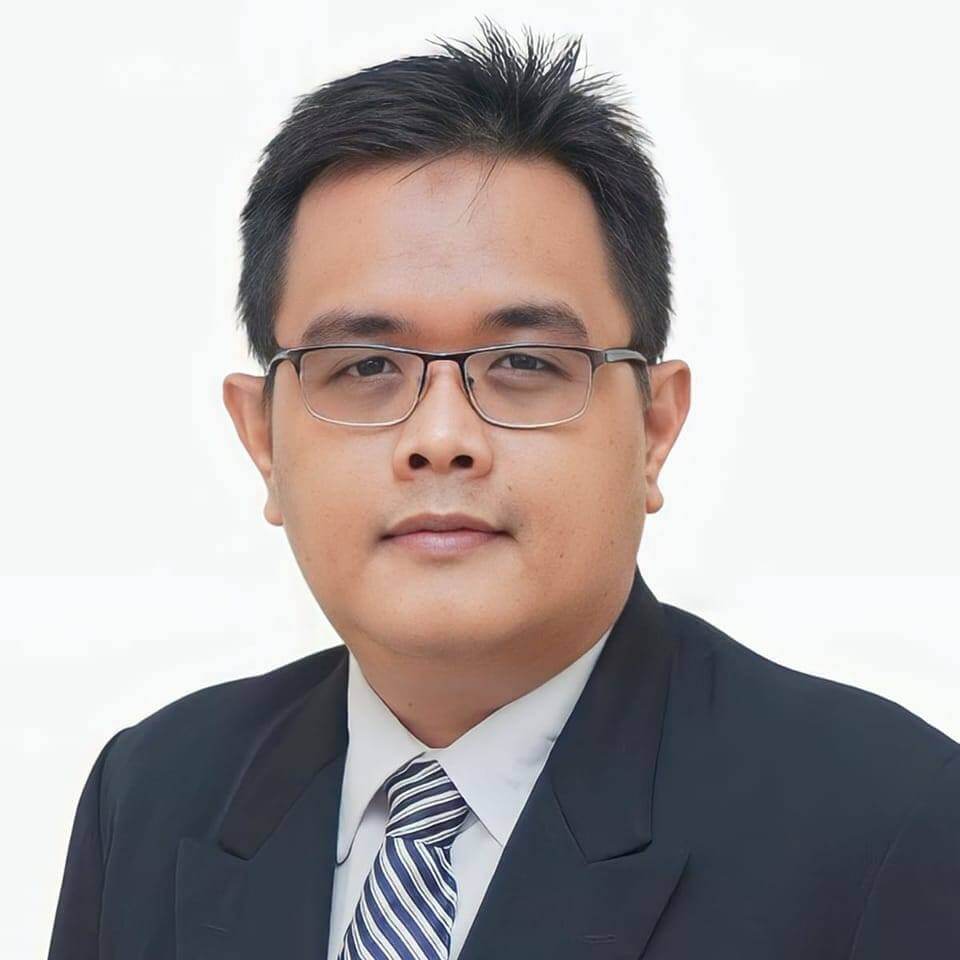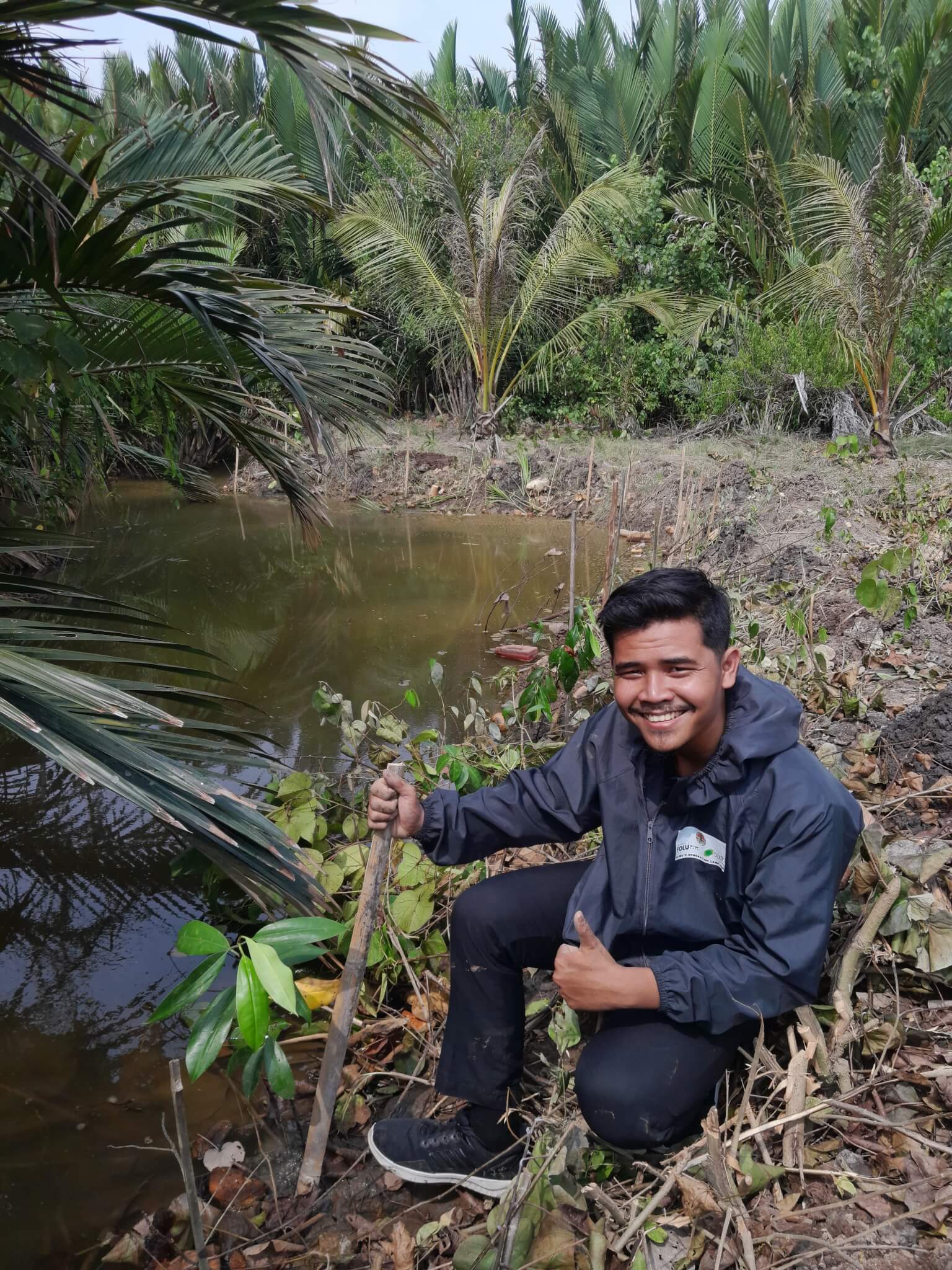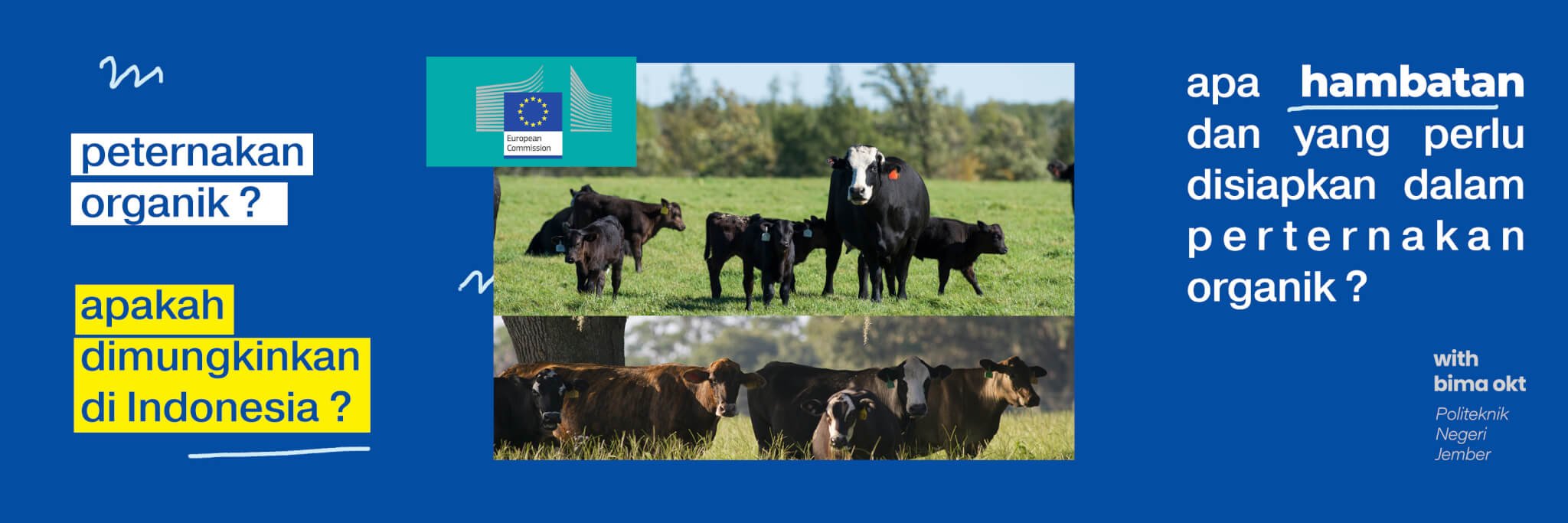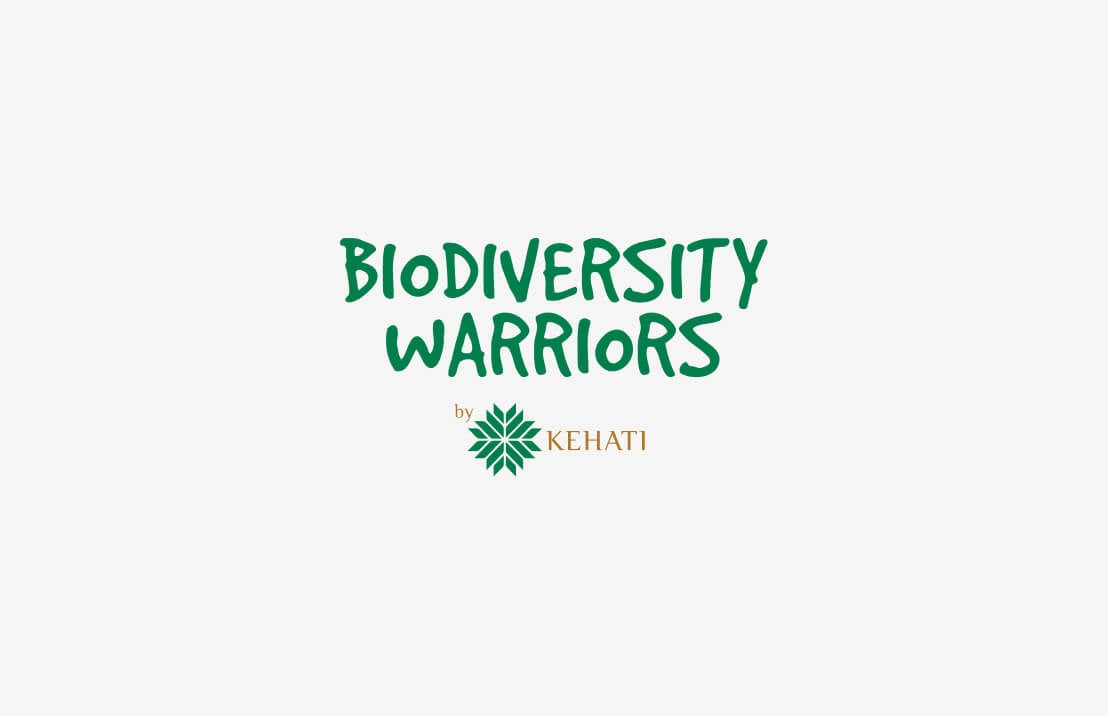
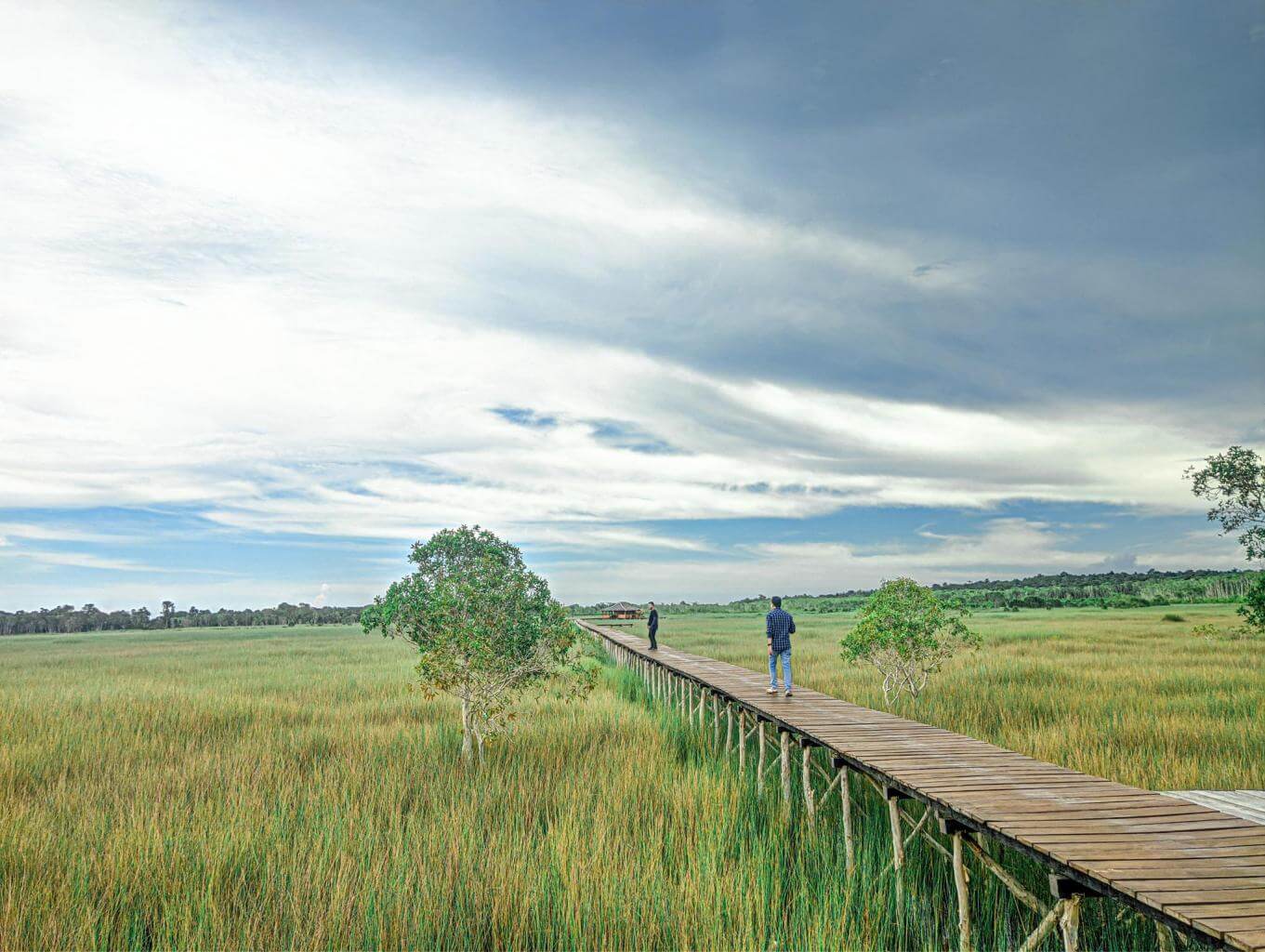

Seliu Island, a captivating tourist destination in Membalong District, Belitung Regency, Bangka Belitung Islands Province, has attracted travelers with its enchanting natural beauty, rich trading history, and intriguing local traditions. However, like many other tourist destinations, Seliu Island faces challenges and dilemmas in its economic development and the management of its natural and social resources.
Tourism Potential of Seliu Island: Integrating History, Tradition, and Nature
Geographically, Seliu Island is located in the southern part of Belitung Regency and is easily accessible by transportation such as speedboats or ferries from Teluk Gembira Harbor. The island not only offers beautiful coastal scenery but also presents cultural diversity reflected in the architecture of traditional houses and the deeply rooted trading history of the local community.
Seliu Island’s history as a thriving copra production center is mirrored in the existence of old houses that still stand firmly, embodying a cultural blend of indigenous, Chinese, and European communities. However, changing times have led to shifts in some local traditions, such as the transition from the economic focus on coconut processing (ngemping) to activities that generate faster income, such as repairing fishing gear.
The local government, through the Tourism Office, has recognized Seliu Island’s potential as a destination for nature and culture-based tourism. By launching a revitalization program involving local tourism awareness groups (Pokdarwis), strategic steps have been taken to develop homestays based on exotic traditional houses. This initiative will not only provide unique lodging experiences for tourists but also empower the local community in the tourism sector.
In addition to its stunning natural beauty, Seliu Island also holds promising economic potential through the development of Purun Lake as a site for purun grass cultivation. Purun grass is a raw material for producing eco-friendly straws, which serve as an important alternative in reducing the use of single-use plastics. This potential offers both economic opportunities for the local community and contributes to global efforts in environmental conservation.
In the context of sustainable tourism development, active involvement of the local community is key to success. By strengthening the institutional capacity of Pokdarwis and encouraging active participation in the management of tourist destinations, the people of Seliu Island can play a pivotal role in promoting and preserving their cultural and natural heritage. Collaboration between the government, entrepreneurs, and the community lays a solid foundation for building a sustainable and inclusive tourism destination.
Pros and Cons of Shrimp Farm Development in Seliu Island
The construction of a Vannamei shrimp farm on Seliu Island by a private company has sparked heated debate among the local community. In assessing this issue, it is important to consider multiple perspectives, both in terms of economic benefits and the potential environmental and social impacts.
On one hand, proponents of the shrimp farm emphasize the potential economic benefits. They argue that the project will create job opportunities for local residents, which in turn will improve welfare and stimulate the economy of Seliu Island. The approval of 265 out of 345 households (76%) residing on Seliu Island demonstrates significant support for the project from the majority of the island’s population. However, on the other hand, opponents are concerned about the negative impacts on the environment and traditional livelihoods, particularly for local fishermen.
According to data from the Indonesian Institute of Sciences’ (LIPI) Center for Oceanographic Research or BRIN, shrimp farm development poses risks of environmental degradation, such as erosion and water pollution. This raises serious concerns about environmental sustainability, especially in vulnerable areas like Seliu Island. Moreover, the use of land for shrimp farming could disrupt mangrove ecosystems that are critical for the marine environment’s biological sustainability.
In addition to environmental impacts, shrimp farm development could also threaten the livelihoods of local communities, particularly fishermen who rely on the sea for their income. Potential water pollution and the reduction of fish populations due to environmental changes could jeopardize the sustainability of these traditional livelihoods.
From a regulatory and spatial planning perspective, there are serious questions regarding the compatibility of the shrimp farm development with existing regulations. Seliu Island has been designated as a Natural Tourism Zone (under Belitung Regency Regulation No. 3 of 2014 and Bangka Belitung Islands Province Regulation No. 3 of 2020) and a Key Tourism Area (according to Presidential Decree No. 17 of 2024), as well as a Maritime Geosite (established by Belitong UNESCO Global Geopark). This raises confusion about the consistency of the shrimp farm development plan with the established goals of environmental conservation and tourism.
Furthermore, the company involved has reportedly obtained permission for the shrimp farm development. This again raises serious questions about decision-making inconsistencies, given that Seliu Island has been designated as a Natural Tourism Zone, a Key Tourism Area, and a Maritime Geosite, as discussed in previous paragraphs.
Addressing the complexity of this issue requires a holistic and evidence-based approach. Firstly, the local government needs to conduct a comprehensive assessment of the environmental and social impacts of the shrimp farm development, involving various stakeholders, including environmental experts, local communities, and relevant parties. The results of this assessment can form the basis for more sustainable decision-making.
Additionally, greater transparency and public participation are needed in the planning and decision-making processes. The local community should be given the opportunity to voice their concerns and participate in decisions that affect their environment and livelihoods.
The local government must also ensure that all development activities comply with applicable environmental regulations and respect the rights of local communities and the conservation goals that have been established. This includes ensuring that the permitting process is conducted transparently and in accordance with the law, as well as enforcing penalties for any violations.
In the long term, collaborative efforts between the government, local communities, and other stakeholders are essential to reaching agreements that benefit all parties and maintain a balance between economic development and environmental conservation. With a holistic and sustainable approach, we can achieve development that is inclusive and respectful of all interests while protecting biodiversity and environmental sustainability.
Conclusion
In responding to the debate surrounding shrimp farm development on Seliu Island, it is essential for all parties to adopt a sustainable and inclusive approach. While the potential economic benefits of the project may improve the welfare of local communities, the potential environmental and social impacts must be taken seriously. Through comprehensive assessments, increased public participation, and adherence to environmental regulations, we can reach agreements that benefit all parties while maintaining a balance between economic development and environmental preservation. In this way, Seliu Island can continue to thrive as a sustainable tourism destination, promoting its cultural and natural diversity while protecting valuable heritage for future generations.
[This article was also published in the Bangka Pos newspaper (Friday, May 24, 2024)]
Leave a Reply
Article


 ID
ID
 EN
EN
